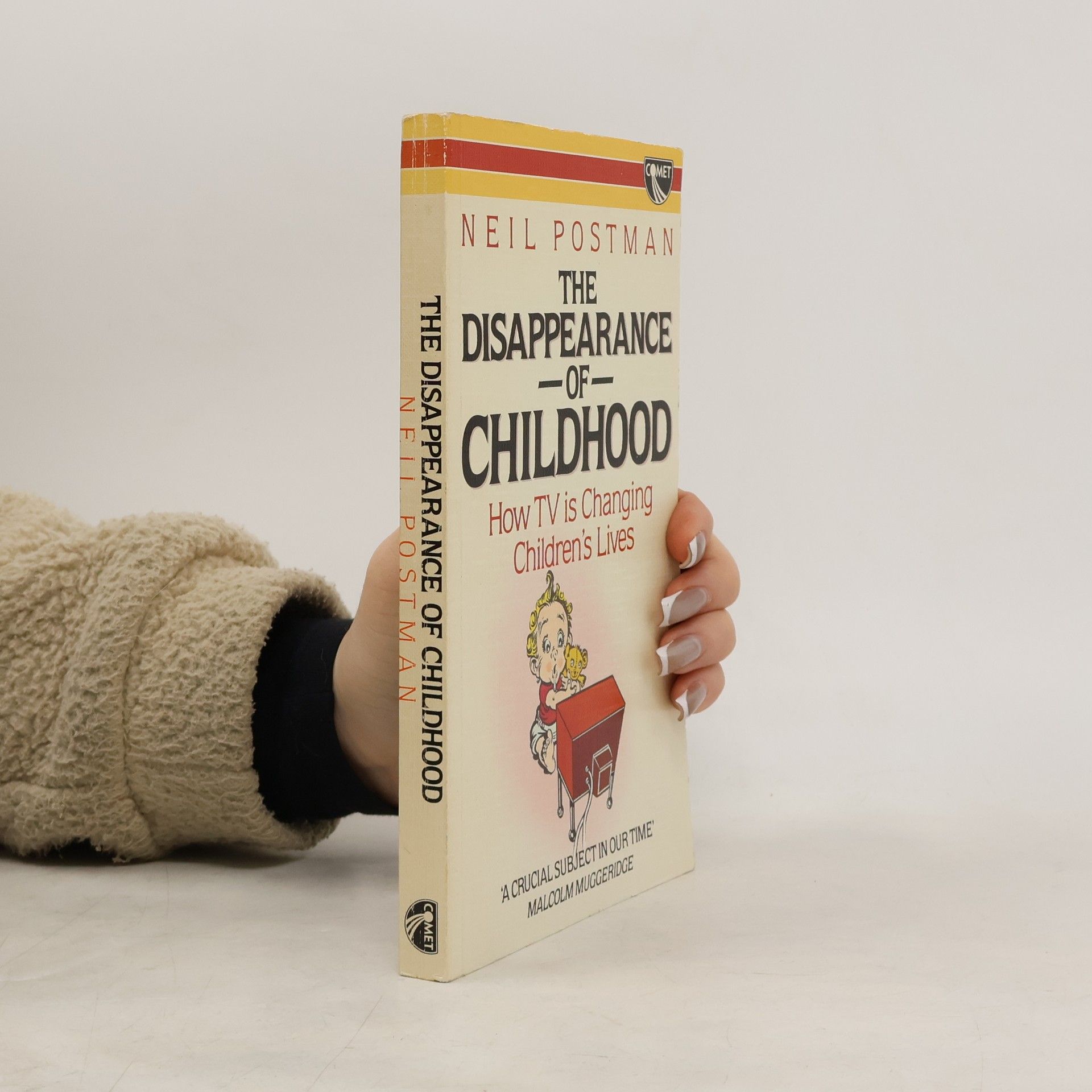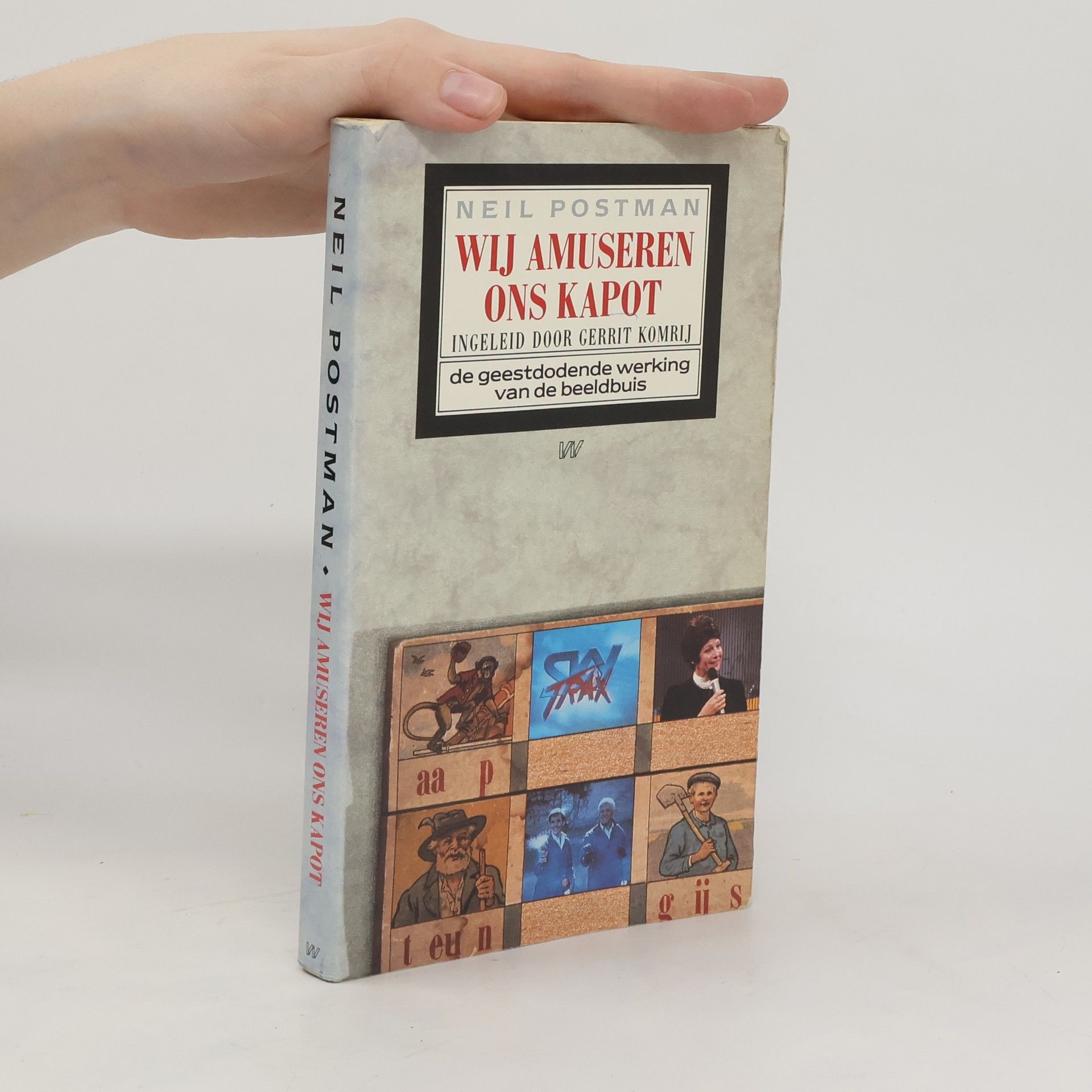Neil Postman Books
Neil Postman was an influential American educator, media theorist, and cultural critic, best known for his critical examination of mass media's impact. He explored how television and other communication forms simplify serious thought and undermine discourse by transforming complex issues into superficial entertainment. Postman emphasized that interactive engagement, rather than top-down information transfer, is crucial for genuine learning. His analyses offer a lasting perspective on the relationship between information and human response.







Amusing ourselves to death. Public discourse in the age of show business
- 208 pages
- 8 hours of reading
Television has conditioned us to tolerate visually entertaining material measured out in spoonfuls of time, to the detriment of rational public discourse and reasoned public affairs. In this eloquent, persuasive book, Neil Postman alerts us to the real and present dangers of this state of affairs, and offers compelling suggestions as to how to withstand the media onslaught. Before we hand over politics, education, religion, and journalism to the show business demands of the television age, we must recognize the ways in which the media shape our lives and the ways we can, in turn, shape them to serve out highest goals.
The Disappearance of Childhood
- 177 pages
- 7 hours of reading
Frederick Kiesler has left a deep impact on architects and designers, artists and theoreticians alike. Himself a versatile artist and architect, Kiesler witnessed the 20th century from the rise of the Avant-Garde in Europe to its progress in America and played a key role in the international discourse on art.
From a renowned social critic, an intriguing look at how high technology is changing our society and culture, and what this means for our future. Postman suggests ways in which a true democracy can use its technical skills not to control but to enhance human endeavor and preserve freedom and individuality.
The End of Education: Redefining the Value of School
- 209 pages
- 8 hours of reading
Postman suggests that the current crisis in our educational system derives from its failure to supply students with a translucent, unifying "narrative" like those that inspired earlier generations. Instead, today's schools promote the false "gods" of economic utility, consumerism, or ethnic separatism and resentment. What alternative strategies can we use to instill our children with a sense of global citizenship, healthy intellectual skepticism, respect of America's traditions, and appreciation of its diversity? In answering this question, The End of Education restores meaning and common sense to the arena in which they are most urgently needed."Informal and clear...Postman's ideas about education are appealingly fresh."--New York Times Book Review
Building a Bridge to the 18th Century
- 224 pages
- 8 hours of reading
In Building a Bridge to the 18th Century, acclaimed cultural critic Neil Postman offers a cure for the hysteria and hazy values of the postmodern world. Postman shows us how to reclaim that balance between mind and machine in a dazzling celebration of the accomplishments of the Enlightenment-from Jefferson's representative democracy to Locke's deductive reasoning to Rousseau's demand that the care and edification of children be considered an investment in our collective future. Here, too, is the bold assertion that Truth is invulnerable to fashion or the passing of time. Provocative and brilliantly argued, Building a Bridge to the 18th Century illuminates a navigable path through the Information Age-a byway whose signposts, it turns out, were there all along.
How to watch TV news
- 178 pages
- 7 hours of reading
A scathing and prescient look at television news' now updated for the new tech-savvy generation Television news : genuine information or entertainment fodder? Fifteen years ago, Neil Postman, a pioneer in media education and author of the bestselling Amusing Ourselves to Death, and Steve Powers, an award-winning broadcast journalist, concluded that anyone who relies exclusively on their television for accurate world news is making a big mistake. A cash cow laden with money from advertisers, so-called news shows glut viewers with celebrity coverage at the cost of things they really should know. Today, this message is still appallingly true but the problems have multiplied, along with the power of the Internet and the abundance of cable channels. A must-read for anyone concerned with the way media is manipulating our worldview, this newly revised edition addresses the evolving technology and devolving quality of America's television news programming.
Technopol" to przede wszystkim książka opowiadająca się za ludzką autonomią, wolnością i twórczością. Błyskotliwy pamflet nie tyle na technikę, ile na stechnicyzowanych ludzi owładniętych ideą, że środki techniczne mogą ich wyręczyć w myśleniu i działaniu.
Verhandeling over de invloed van televisie en de gevolgen daarvan voor de maatschappij.
Die zweite Aufklärung
- 253 pages
- 9 hours of reading
In bekannter Radikalität definiert der Medienkritiker die großen vor uns liegenden Herausforderungen. Seine Themen sind Fortschritt, Technologie, Sprache, Information, Demokratie und Erziehung. Er hinterfragt die modernen Technologien wie Internet, interaktives Fernsehen, virtuelle Realität: "Was ist das Problem, für das diese Technologie die Lösung bietet?"§Für Postman liegt die Antwort in den Erkenntnissen des Zeitalters der Aufklärung. Postmans frühere Analysen sind durch die modernen Industriegesellschaften ausnahmslos bestätigt worden - auch in diesem Buch liefert er Handlungsmodelle, die sich im 21. Jahrhundert als fruchtbar erweisen könnten.



